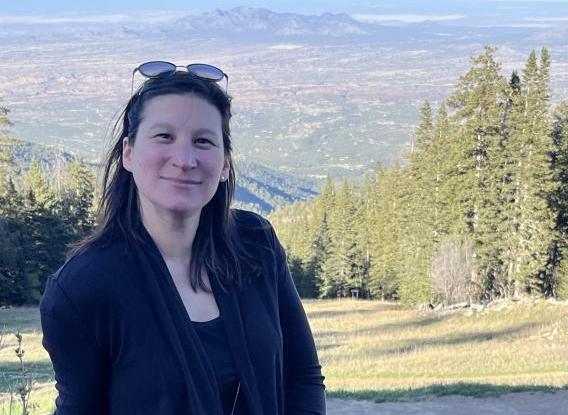Achieving rural health equity is an ambitious goal, but it’s one that CTSI’s Rural Health Program has been actively chasing since its inception less than two years ago.
To do this, its program leaders Katy Backes Kozhimannil, PhD, and Carrie Henning-Smith, PhD, are taking a multi-pronged approach. The renowned rural health experts have created training and fellowship programs as well as built the Rural Collective, a network of rural-focused University of Minnesota individuals and units.
“The voices and stories of all rural people matter, and to improve population health, all voices must inform evidence, stories, and policies,” Drs. Kozhimannil and Henning-Smith wrote in Health Affairs. “This will provide a richer, truer narrative with the potential to improve health and equity in rural America.”
Rural-focused health equity fellowship
CTSI’s Rural Health Equity Postdoctoral Fellowship is the first in the nation to focus on rural health equity. These fellows conduct research that focuses on improving the lived experiences of rural residents in Minnesota and across the nation, and work toward translating clinical research into evidence to guide and inform health policy.
JAMA Health Forum recently published the work of the program’s first fellow, Bridget Basile Ibrahim, PhD, MA, FNP-BC. Dr. Basile Ibrahim led a survey of rural hospital administrators, and the team’s research found that rural hospitals often try to provide obstetrics care despite not having enough births to keep units profitable.
The study noted that hospital administrators estimated that their hospitals need an average of 200 births per year to provide safe and financially viable services. However, some hospitals keep maternity wards open to meet community needs even when birth rates fail to meet the threshold.
Most administrators indicated they wished to continue providing obstetrics services, yet nearly 25 percent said they believed their hospital would close its unit or were unsure about its future.

Training for rural health leaders
Project REACH (Rural Experts Advancing Community Health) is a yearlong program that provides community leaders in rural Minnesota with health policy and leadership training to address local health challenges.
In 2021, the inaugural cohort worked on policy solutions to health problems that were important in their hometowns; highlights include:
- Impacting maternal and infant health outcomes for Indigenous families — Pharmacist Adam Pavek, PharmD, engaged with tribal providers, members, local providers and OB GYN groups to help enhance participation in Itasca County's healthy pregnancy program.
- Addressing social isolation in older adults in rural communities — To community advocate Ann Bussey, Project REACH gave her an opportunity to highlight older adult digital inclusion and digital literacy as a critical healthy aging strategy, especially for those living in the scarce broadband areas of Greater Minnesota.
- Confronting the high rate of suicide ideation among 11th grade females — Community health leader Leah Lehtola says Project REACH led her to connect with key stakeholders she otherwise wouldn’t have had the push to engage with. And those discussion, she feels they’ve unlocked potential for collaboration.
A network of rural health champions
The Rural Collective brings together a group of University centers, organizations, staff, faculty, and students whose research and education focuses on rural people and places.
It provides a forum for networking, learning, and collaborating with the ultimate aim of improving health, quality of life, and community resources for rural people and places throughout Minnesota and across the U.S.
In less than a year, more than 70 individuals and nearly 20 partnering institutions have joined the Rural Collective.
Aligning for impact
CTSI’s Rural Health Program is one part of a new aligned rural health initiative for CTSI and the Office of Academic Clinical Affairs (OACA).
Dr. Kozhimannil also serves as OACA’s Director of Rural Health Programs, a role that involves bringing together University of Minnesota and community constituents to advance rural health.
Voices for change
In addition to spearheading CTSI and OACA rural health programs, both Drs. Kozhimannil and Henning-Smith use their voices to tirelessly champion rural health issues.
They’ve informed health policy, became oft-cited experts on the topic in local and national media, and contributed extensively to academic literature.
For example, Dr. Henning-Smith delivered invited testimony to the U.S. Senate Committee on Agriculture, Nutrition, & Forestry in March 2022. Also, their recent studies in Health Affairs have ranged from shedding light on the rural-urban differences in maternal mortality to showing that rural counties with majority Black or Indigenous populations suffer the highest rates of premature death in the U.S.
In 2020, Dr. Kozhimmanil received the prestigious Heinz Award in the Public Policy category for her research. She was commended for research that’s shining a light on the systems and practices that are contributing to inequities in healthcare, and structuring her work in a way that enables a practical, actionable response by policymakers and healthcare professionals.

Drs. Kozhimannil and Henning-Smith continue advocating for policy changes aimed at improving the health and wellbeing of rural people. For example, their key policy-related priorities for rural health equity includes increasing rural representation in decision-making bodies at the federal, state, and local level as well as expanding access to health and wellbeing resources for people and communities in rural Minnesota.
“Too often, we try to take what we learn in urban settings and apply it in rural areas without understanding that what works in a city doesn’t necessarily work the same way in rural settings,” says Dr. Henning-Smith. “On top of that, there is already so much knowledge and innovation in rural communities. If rural residents have a seat at the table and are given the needed resources, they can more effectively address issues without having to resort to using urban models and interventions.”
